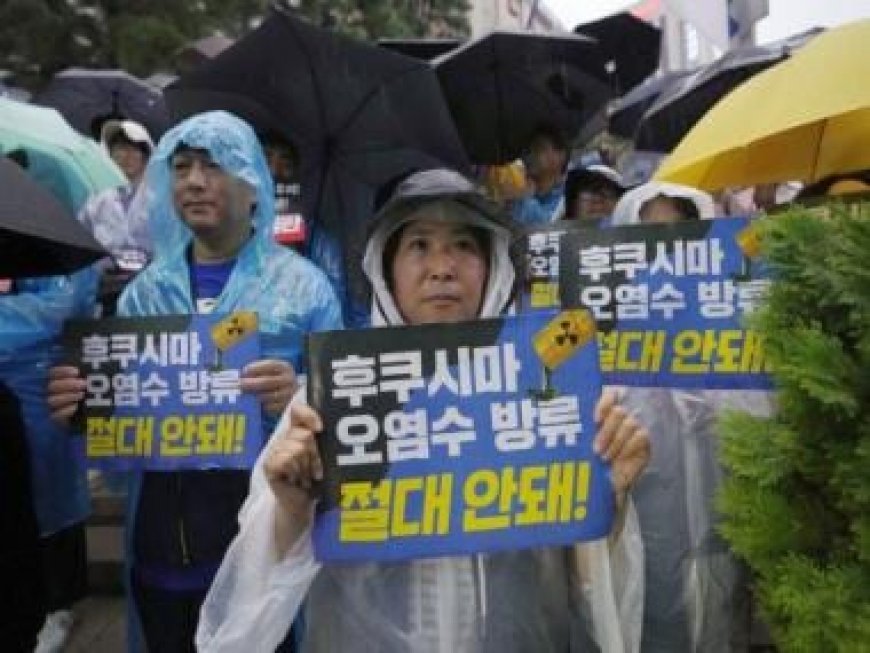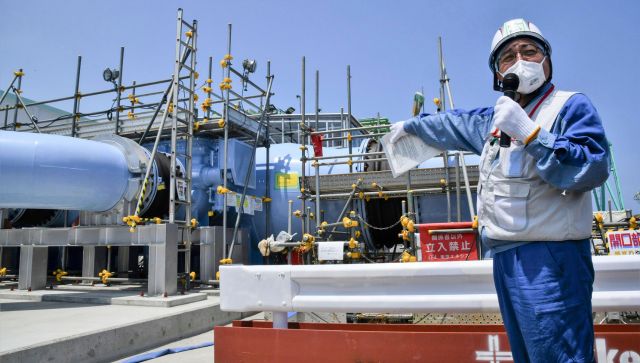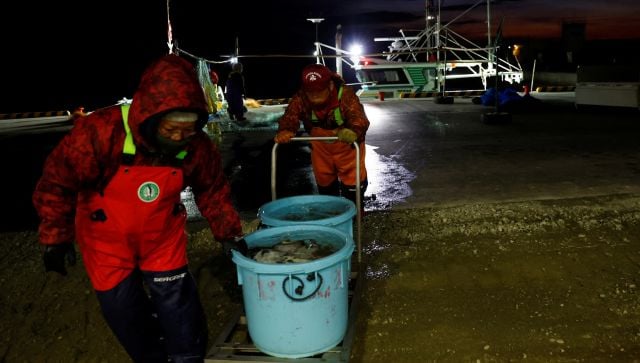Why Japan’s plan to release wastewater from Fukushima nuclear plant is controversial
Why Japan’s plan to release wastewater from Fukushima nuclear plant is controversial

Japan received the nod of a United Nations watchdog on Tuesday (4 July) to go ahead with its plans to release wastewater from the Fukushima nuclear plant into the Pacific Ocean. Endorsing the proposal, International Atomic Energy Agency (IAEA) said the discharge will have “negligible radiological impact to people and the environment”, reported Reuters.
Addressing reporters at the Japan National Press Club today, IAEA chief Rafael Grossi said he would seek to quell any concerns regarding this. “The IAEA will have a continued presence at the site, we will continue the review if the plan moves forward because as you know this is a decision by the government,” Reuters quoted Grossi as saying.
He also submitted the final report of the plan to Japan prime minister Fumio Kishida, calling it a “comprehensive, neutral, objective, scientifically sound evaluation”, as per Associated Press (AP).
The approval of Japan’s plan comes amid protests from China, South Korea and some Pacific Island nations.
But why is the plan facing resistance from some quarters? We explain.
Where is this wastewater coming from?
In 2011, a 9.0-magnitude earthquake triggered a tsunami that flooded three reactors of the Fukushima Daiichi Nuclear power plant.
With the tsunami damaging the electricity and cooling systems at the nuclear plant, it became the worst nuclear disaster in the world since the Chornobyl explosion.
As per Al Jazeera, most of the water comes from cooling the three destroyed reactors. The rest is from the rain that has hit the contaminated site, and groundwater.
The nuclear plant produces 100 cubic metres of wastewater every day, reported BBC. Presently, about 1,000 tanks on the contaminated site hold about 1.3 million cubic metres of water. However, they will reach their capacity in early 2024.
Japan also needs to discharge the treated wastewater so that the wrecked nuclear plant can be decommissioned.
How will the water be dumped?
The contaminated water has been distilled after it came in contact with fuel rods at the reactor, reported Reuters.
Tokyo Electric Power Company (TEPCO) has been filtering contaminated water to get rid of isotopes. As BBC noted, the wastewater now contains only carbon 14 and tritium – a radioactive isotope of hydrogen – which are hard to separate from water.
TEPCO will dilute the water until tritium levels fall under the regulatory limit, as per Reuters.

Japan has said it will release the treated water through a pipeline extending about one kilometre from the nuclear plant site into the Pacific Ocean, a process that can take over decades.
Notably, water containing tritium is released from nuclear plants around the world.
Tritium does not emit enough radiation to penetrate human skin. But, as per the Canadian Nuclear Safety Commission, it can raise cancer risks if consumed in extremely large quantities.
Opposition to Japan’s proposal
Fishers and some countries have objected to Japan’s plans.
Stakeholders in Peru’s fishing industry as well as Japanese fishing communities have expressed concerns that the release could affect their livelihood.
Liliana Cornejo, the governor of Tacna Province in southern Peru, raised questions about Tokyo’s assurance that the discharged wastewater will be free of contaminants. “The Japanese government said that the water had already been treated. But that’s not true. According to the information we have gathered, the water could still cause radioactive contamination. It will harm not only the ocean, but all the people who make their living from fishing along the coasts of Peru,” the governor told Reuters.
Fishing unions in Fukushima have also urged the government for years not to release wastewater into the Pacific.
Haruhiko Terasawa, head of the Miyagi prefectural fisheries cooperatives, said they will continue to oppose the plan.

“The treated water is not a problem that ends after a single time or a year of release, but lasts as long as 30-40 years, so nobody can predict what might happen,” he told TV Asahi, as per AP.
On Tuesday, China once again asked Japan to “stop pushing through the discharge plan”, and to “fully explore and evaluate the alternatives to ocean discharge to ensure that the nuclear-contaminated water is handled in a scientific, safe and transparent manner”, reported Reuters.
Amid food safety concerns, South Koreans have stocked up on sea salt before the wastewater discharge.
Following the 2011 nuclear disaster, South Korea had banned seafood and agricultural produce from Fukushima due to safety fears. The ban continues to date despite a thaw in relations between the two countries recently.
What do experts say?
Jim Smith, an environmental scientist at the University of Portsmouth, United Kingdom, said the risk of the released wastewater to countries around the Pacific Ocean is likely to be “negligible”. “The risk of another earthquake or a typhoon causing a leak of a tank is higher, and they’re running out of space,” he told Nature journal.
According to some scientists, the “long-term, low-dose exposure” to radionuclides or radioactive elements is yet to be known, reported AP.
As per Nature, Shigeyoshi Otosaka, an oceanographer and marine chemist at the Atmospheric and Ocean Research Institute of the University of Tokyo, said that the “organically bound form of tritium could accumulate in fish and marine organisms”.
“I think it is important to evaluate the long-term environmental impact of these radionuclides,” he added.
With inputs from agencies
Read all the Latest News, Trending News, Cricket News, Bollywood News,
India News and Entertainment News here. Follow us on Facebook, Twitter and Instagram.
What's Your Reaction?

























































